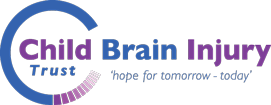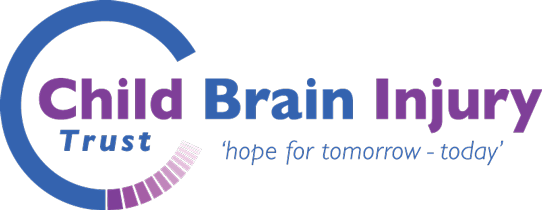
Who is the counselling service for?
The Child Brain Injury Trust counselling service is available to all registered Child Brain Injury Trust families and can be accessed by:
- Parents and carers of a young person with an ABI
- Children and young adults with an ABI (aged 11 years and over)
- Siblings of a young person with an ABI (aged 11 years and over)
What does the counselling service do?
Individuals will be offered six to eight, fifty-minute counselling sessions (one session per week) via telephone or video-call. This will be with one of our qualified counsellors, who have also completed training on understanding childhood acquired brain injury (ABI).
How do I access the service?
To download a referral form please click HERE for the Word version and click HERE for the PDF Version.
Once you have completed your referral form, please email it to office@cbituk.org or post it to:
Child Brain Injury Trust
3 Field View
Baynards Green Farm Trading Estate
Baynards Green
Nr Bicester
Oxfordshire
OX27 7SR
Once we receive your completed referral form, your referral may be placed on a short waiting list. When your referral reaches the top of the list, we will direct it to one of our counsellors. The counsellor will then contact you to make an initial appointment.
For more information or if you need support completing a referral form, please email office@cbituk.org and a member of the team will get back to you.
In a Crisis:
The Child Brain Injury Trust Counselling Service is not a crisis service. In a crisis:
- Call 999 if it is an Emergency (if someone is at significant risk of hurting themselves or another person, or of breaking the law).
- Call NHS 111 if you need urgent help, but it is not an emergency.
You can also call a crisis hotline or text a crisis messenger:
- Call your local NHS urgent mental health helpline. Find your local helpline HERE.
- Call Samaritans on 116 123 (or for the Samaritans Welsh Language Line, call 0808 164 0123)
- If you are under 25, call The Mix on 0808 808 4994 (3pm–midnight every day) or text THEMIX to 85258
- If you are over 25 years old, text “SHOUT” to 85258 to contact the Shout Crisis Text Line
Meet our counsellors:

Confidentiality
This is a very important aspect of the counselling relationship. Everything that is discussed with your counsellor in the counselling session is kept in the strictest confidence.
As members of their respective professional body, counsellors are required to have regular clinical supervision and your counsellor will need to discuss their work with their supervisor from time to time. However, they will not disclose your name or anything that would enable you to be identified. Any information that a supervisor receives is also treated as confidential and subject to the same ethical criteria as counselling.
If your doctor is treating you for emotional difficulties, it is important that you inform him or her about your counsellor, and vice versa. Your counsellor will not confer with your doctor without your knowledge and permission.
If there is convincing evidence that you intend to harm yourself or others, your counsellor will need to break confidentiality by informing your doctor, or in serious cases the police, emergency services, or other appropriate third party. Wherever possible, and if it is appropriate, you will be informed of this. Your counsellor may also keep brief notes after a session, which will be securely stored.
Safeguarding
The Child Brain Injury Trust takes safeguarding very seriously and believe in the paramountcy principle in that the child’s best interest and welfare is the first and paramount consideration. When it comes to information sharing with other professionals it is not our intention to share information that is not relevant, necessary, proportionate, adequate, accurate, timely and shared in a secure way, but share information that will protect service users.
If you have any concerns about safeguarding or the welfare of any child or vulnerable adult, you can raise your concerns with the Child Brain Injury Trust Safeguarding Lead: Gerard Anderson, Head of Brain Injury Services (gerardanderson@cbituk.org) or phone 01869341075.
My therapist isn’t right for me
You have the option of asking for different therapist. Relationships between therapists and clients are extremely important and if you don’t connect with a therapist, it doesn’t mean that they aren’t a good therapist. It might just mean that you connect better with someone else. All therapists are aware of this. If you would like to receive counselling from someone different then please speak to either your counsellor or the Child Brain Injury Trust.
It is also the case that your counsellor may decide that this service is not right for you. This might be because they feel you might benefit from some more specialised support, or that it is not the right time for you in your journey. If you our counsellors feel that this service is not right for you, they may signpost you or refer you on to a different service.
Make a complaint
If you’re not happy with how your counsellor is supporting you, you can make a complaint by raising your concerns with Gerard Anderson, Head of Brain Injury Services (gerardanderson@cbituk.org) or phone 01869341075.
Feedback from counselling sessions:
Thank you so much…. Your listening ear, suggestions and support have helped me so much and in turn I’ve been able to help other family members You really do know your stuff.
I’m so grateful to of had this service … and I will forever remember how [MY COUNSELLOR] helped me. I felt I was listened to, valued, respected and she really focused on what I was saying to help me through my problems… I feel like I’ve been saved, and I feel like I’m ready to face the world… Thank you so so much, the service saved me.
I recently finished my 10th session … and I honestly can’t thank you enough for putting everything in place – [MY COUNSELLOR] has been an amazing and, as it turns out much, a much needed support.
… I was nervous, apprehensive and doubtful that just talking to someone would help in anyway. I remember [MY COUNSELLOR] telling me that our sessions were a “safe space”” to talk, and it was okay to feel sad. Fast forward 10 weeks and I am in a much better place – [MY COUNSELLOR] has helped me put in place a range of strategies to cope how much life has changed.
What did you learn in counselling?
So many things, I could write a book. I learned how to be ME, I learned how to deal with situations, I learned the value of life and my life, I learned strategies to cope, I learned how to live again.
Tools and techniques for dealing with stressful situations and also how to think about events in a different way.
That its ok not to be ok. To talk about how I am feeling.
Having had counselling before I’m aware of using strategies to help. Kind of like tools to fix something. This was a whole different level…. A whole new toolbox with new and different strategies. Unique and totally appreciated and they work.





